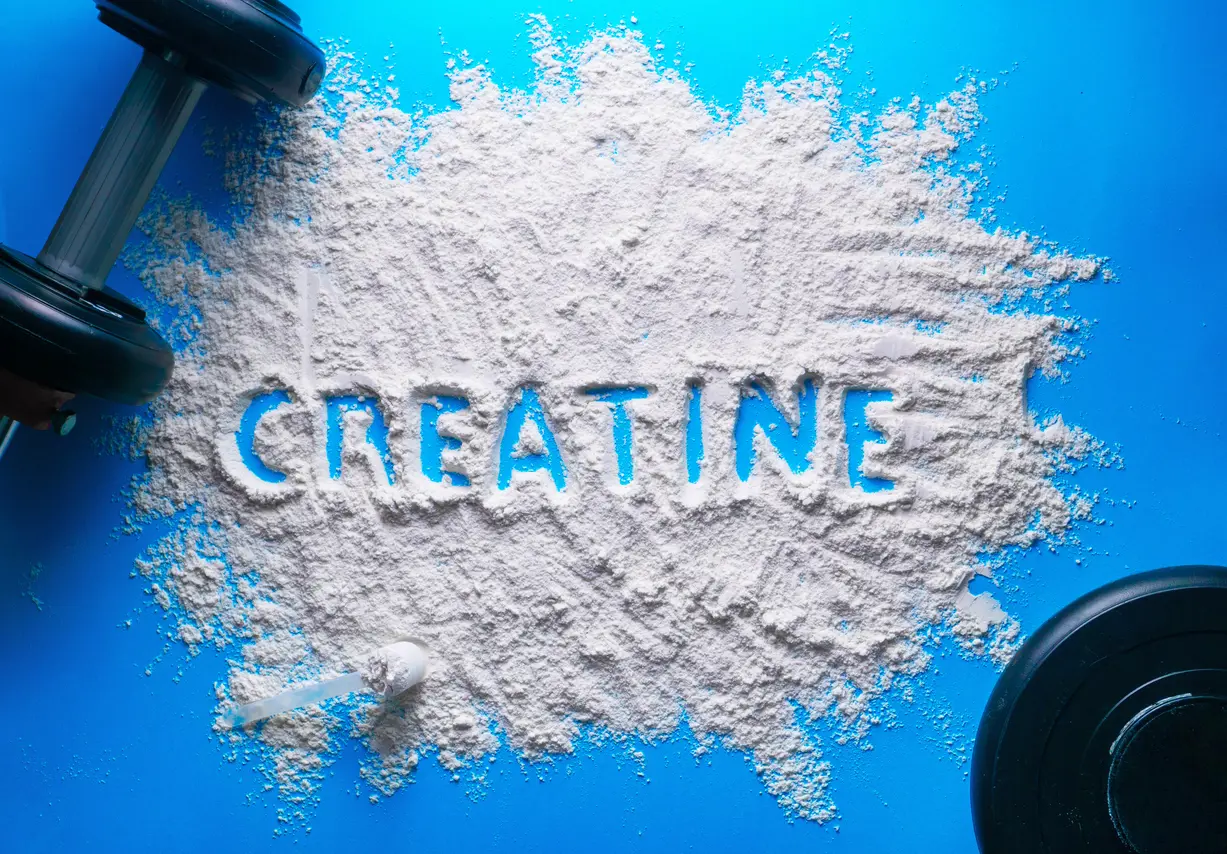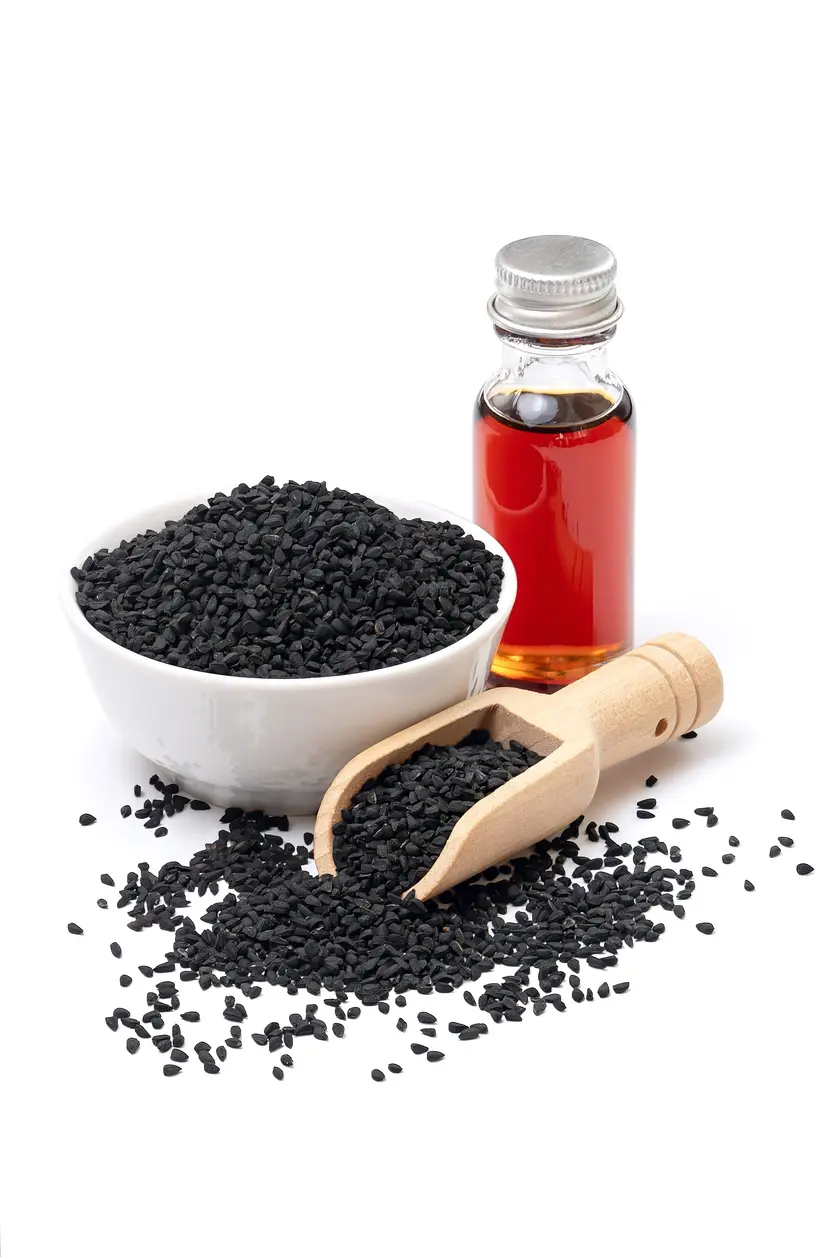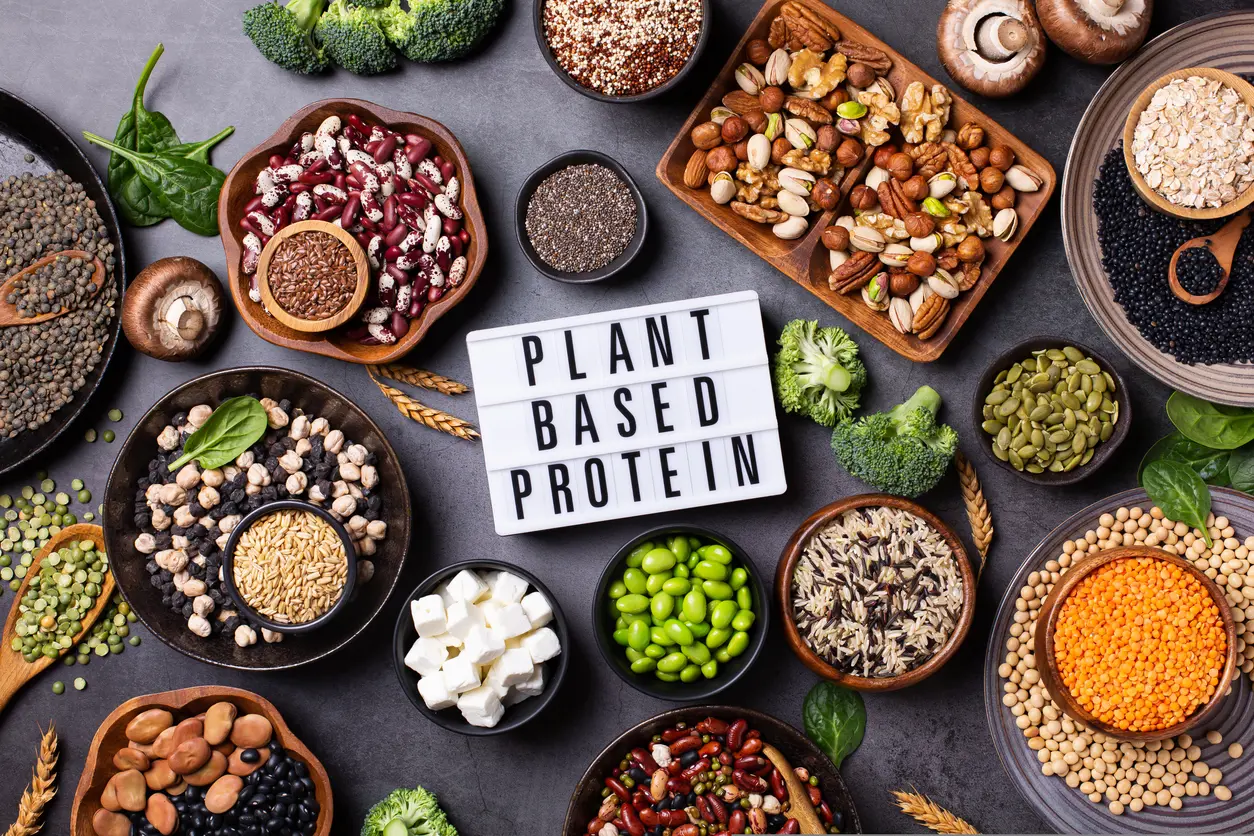Creatine: How It Works, Benefits, and Is It Safe?

Creatine is among the most discussed supplements in the health & fitness world. It is taken by everyone from recreational gym users to professional athletes in an attempt to gain strength, enhance performance, and aid in recovery. Yet for all its popularity, there are still questions. What does creatine do? Is it safe to use over an extended period of time? And can it provide any benefits aside from physical performance?
Creatine is a substance that naturally occurs in the body, mostly in muscle tissue, where it plays a critical role in energy production for short bursts of high-intensity activity. It is also present in foods, including red meat and fish, and is sold as a supplement, most often in the form of creatine monohydrate. Over the years, creatine has become one of the most extensively researched dietary supplements, with studies examining its effects on exercise performance, muscle growth, brain health, and healthy aging.
This article will explain how creatine works, review the evidence-based benefits, address potential safety concerns, and provide guidance on how to use it effectively.
What Is Creatine and How Does It Work?
Creatine is a substance made in the body from three amino acids: arginine, glycine, and methionine. Most of it is produced in the liver and kidneys, then sent to the muscles, where about 95 percent is stored as phosphocreatine. [1] Richard B Kreider, Jeffery R Stout Creatine in Health and Disease, 2021 Jan 29;13(2):447. doi: 10.3390/nu13020447
Phosphocreatine is essential for energy production. During short, intense movements like sprinting or lifting weights, your muscles rely on a molecule called ATP (adenosine triphosphate) for energy. However, your body can only store a small amount of ATP, and it runs out quickly. Phosphocreatine helps to regenerate ATP, allowing you to keep performing at a high level for a little longer. [2] Jorge Gutiérrez-Hellín, Juan Del Coso, Arturo Franco-Andrés et al. Creatine Supplementation Beyond Athletics: Benefits of Different Types of Creatine for Women, Vegans, and Clinical Populations—A Narrative Review, 2024 Dec 29;17(1):95. doi: 10.3390/nu17010095
Although your body makes creatine naturally, and you can get small amounts from foods like red meat and fish, taking it as a supplement increases the amount stored in your muscles. Those ingredients may improve performance during high-intensity, short-duration activities such as weightlifting, sprinting, or jumping. [2] Jorge Gutiérrez-Hellín, Juan Del Coso, Arturo Franco-Andrés et al. Creatine Supplementation Beyond Athletics: Benefits of Different Types of Creatine for Women, Vegans, and Clinical Populations—A Narrative Review, 2024 Dec 29;17(1):95. doi: 10.3390/nu17010095
Proven Benefits of Creatine
Creatine is one of the most researched supplements in sports and health science. Its effects extend beyond muscle building to include potential benefits for recovery, brain function, and aging.
1. Increased Strength and Power
Creatine has strong evidence for improving performance in high-intensity, short-duration exercises such as sprinting and weightlifting. This is because it helps in the rapid regeneration of ATP, which provides energy for muscle contractions during intense exercise.
Several trials have confirmed that creatine supplementation increases maximal strength, power output, and work capacity in repeated high-intensity exercise. [2] Jorge Gutiérrez-Hellín, Juan Del Coso, Arturo Franco-Andrés et al. Creatine Supplementation Beyond Athletics: Benefits of Different Types of Creatine for Women, Vegans, and Clinical Populations—A Narrative Review, 2024 Dec 29;17(1):95. doi: 10.3390/nu17010095
2. Supports Muscle Growth
Creatine may enhance muscle growth through two main mechanisms: increasing training volume and drawing water into muscle cells (cell volumization), which may stimulate muscle protein synthesis. Over time, this can lead to increased fat-free mass when paired with resistance exercise. [2] Jorge Gutiérrez-Hellín, Juan Del Coso, Arturo Franco-Andrés et al. Creatine Supplementation Beyond Athletics: Benefits of Different Types of Creatine for Women, Vegans, and Clinical Populations—A Narrative Review, 2024 Dec 29;17(1):95. doi: 10.3390/nu17010095
Studies have shown that individuals supplementing with creatine gain more lean mass and experience greater improvements in muscular endurance than those who train without it. [4] Sergej M Ostojic, Erik Grasaas Dietary Creatine and Hydration Biomarkers in the General Population: NHANES 1999–2023: 2025 Jun 27;13(7):e70524. doi: 10.1002/fsn3.70524
3. Faster Muscle Recovery
Creatine may help reduce muscle damage and inflammation after intense exercise. It has been shown to decrease biomarkers of muscle breakdown, including creatine kinase, and may also reduce how long muscle soreness lasts after challenging exercise. This can be beneficial for both recreational and competitive athletes looking to recover faster in between training sessions. [2] Jorge Gutiérrez-Hellín, Juan Del Coso, Arturo Franco-Andrés et al. Creatine Supplementation Beyond Athletics: Benefits of Different Types of Creatine for Women, Vegans, and Clinical Populations—A Narrative Review, 2024 Dec 29;17(1):95. doi: 10.3390/nu17010095
4. Improved Brain Function
Creatine is not limited to muscle cells. The brain also retains and uses creatine to maintain ATP levels during mental activity. Early studies show that creatine supplementation may enhance short-term memory and reduce mental fatigue, particularly in those who are sleep-deprived or vegetarians with lower initial creatine stores, however, more research is needed in this area. [2] Jorge Gutiérrez-Hellín, Juan Del Coso, Arturo Franco-Andrés et al. Creatine Supplementation Beyond Athletics: Benefits of Different Types of Creatine for Women, Vegans, and Clinical Populations—A Narrative Review, 2024 Dec 29;17(1):95. doi: 10.3390/nu17010095
5. Potential Benefits for Older Adults
Sarcopenia, the gradual loss of muscle mass and function with age, is a contributor to frailty and falling in elderly persons. Creatine can attenuate this loss when combined with resistance exercise. Research in elderly persons has shown that creatine supplementation enhances strength, lean mass, and physical performance in activities such as chair stands and walking. [2] Jorge Gutiérrez-Hellín, Juan Del Coso, Arturo Franco-Andrés et al. Creatine Supplementation Beyond Athletics: Benefits of Different Types of Creatine for Women, Vegans, and Clinical Populations—A Narrative Review, 2024 Dec 29;17(1):95. doi: 10.3390/nu17010095
Is Creatine Safe?
Creatine is one of the most studied and well-documented dietary supplements in the world. Its safety profile has been evaluated in both short- and long-term studies involving healthy individuals, athletes, older adults, and clinical populations.
Long-Term Safety in Healthy Individuals
Numerous trials have concluded that creatine supplementation is safe when taken at recommended doses. The International Society of Sports Nutrition (ISSN) states that long-term creatine use (up to 5 years) in healthy individuals does not cause adverse effects on kidney, liver, or cardiovascular function. [3] Creatine supplementation is safe, beneficial throughout the lifespan, and should not be restricted
Common Safety Myths
One of the most persistent myths about creatine is that it causes dehydration or muscle cramps. This claim has been disproven in multiple clinical settings. In fact, creatine may improve cellular hydration by increasing intracellular water content, which could reduce the risk of dehydration during exercise. [4] Sergej M Ostojic, Erik Grasaas Dietary Creatine and Hydration Biomarkers in the General Population: NHANES 1999–2023: 2025 Jun 27;13(7):e70524. doi: 10.1002/fsn3.70524
Other unfounded concerns include claims that creatine causes hair loss or hormonal imbalances. However, there is no conclusive evidence supporting these effects in healthy individuals, and they have not been observed consistently in controlled trials. [5] Mohammadyasin Lak, Scott C Forbes, Damoon Ashtary-Larky, Sahar Dadkhahfar et al. Does creatine cause hair loss? A 12-week randomized controlled trial: 2025 Sep;22(sup1):2495229. doi: 10.1080/15502783.2025.2495229.
Who Should Use with Caution
While creatine is considered safe for most people, those with pre-existing kidney conditions or other chronic illnesses should consult a healthcare provider before using creatine. This is a precaution, not because creatine is known to cause harm, but because individuals with compromised renal function may have different requirements or tolerances. [6] Alexandre de Souza E Silva, Adriana Pertille, Carolina Gabriela Reis Barbosa et al. Effects of Creatine Supplementation on Renal Function: A Systematic Review and Meta-Analysis: 2019 Nov;29(6):480-489. doi: 10.1053/j.jrn.2019.05.004.
Similarly, pregnant or breastfeeding individuals should avoid creatine supplementation unless advised otherwise by a healthcare professional, due to the lack of safety data in these groups. [7] Creatine, NIH
Possible Side Effects of Creatine
Creatine is well-tolerated by most people, but like any supplement, it may cause mild side effects in some individuals. These are generally minor and manageable when creatine is used at recommended doses.
1. Short Term Water Retention
Creatine draws water into muscle cells, which can lead to a temporary weight gain of about 1 to 2 kilograms in the first week. This increase is from water, not fat, and may cause a feeling of fullness or mild bloating in some individuals. The effect typically stabilizes over time. [4] Sergej M Ostojic, Erik Grasaas Dietary Creatine and Hydration Biomarkers in the General Population: NHANES 1999–2023: 2025 Jun 27;13(7):e70524. doi: 10.1002/fsn3.70524
2. Gastrointestinal Discomfort
Some people may experience stomach cramps, nausea, or diarrhea when taking high doses of creatine, particularly during the loading phase. Splitting the dose into smaller servings and taking it with food or liquid can help reduce discomfort. [9] Felipe Ribeiro, Igor Longobardi, Pedro Perim, Breno Duarte, Pedro Ferreira et al Timing of Creatine Supplementation around Exercise: A Real Concern? 2021 Aug 19;13(8):2844. doi: 10.3390/nu13082844
3. Cramps and Dehydration
Concerns that creatine causes dehydration or muscle cramps are not supported by current research. In fact, studies have shown that creatine may improve total body water and help regulate temperature during exercise in hot conditions. [10] Vincent Dalbo, M D Roberts, Jeffrey R. Stout, Chad M Kerksick Putting to rest the myth of creatine supplementation leading to muscle cramps and dehydration, 2008, DOI:10.1136/bjsm.2007.042473
4. Loading Phase Not Required
A loading phase can raise muscle creatine levels more quickly, but it is not required. A daily dose of 3 to 5 grams is just as effective over time and may result in fewer side effects. [11] Felipe Ribeiro, Igor Longobardi, Pedro Perim, Breno Duarte, Pedro Ferreira Timing of Creatine Supplementation around Exercise: A Real Concern? 2021 Aug 19;13(8):2844. doi: 10.3390/nu13082844
How to Use Creatine: Dosing and Timing
When it comes to supplementation, creatine is relatively straightforward. It does not require complicated cycling schedules, and most people can benefit from a consistent, daily dose.
Recommended Daily Dose
The most common and effective dosage of creatine monohydrate is 3 to 5 grams per day. This amount is sufficient to saturate muscle creatine stores over time, leading to enhanced performance and recovery benefits without the need for high initial intakes. [12] Howard E. LeWine, MD What is creatine? Potential benefits and risks of this popular supplement
Optional: Loading Phase
Some users choose to begin with a loading phase, which involves taking 20 grams per day (divided into 4 doses of 5 grams) for 5 to 7 days. [9] This rapidly increases muscle creatine levels and may lead to quicker performance benefits. However, this strategy is optional. A steady daily dose of 3 to 5 grams will achieve the same saturation within about 3 to 4 weeks. [11] Felipe Ribeiro, Igor Longobardi, Pedro Perim, Breno Duarte, Pedro Ferreira Timing of Creatine Supplementation around Exercise: A Real Concern? 2021 Aug 19;13(8):2844. doi: 10.3390/nu13082844
Timing: When to Take It
- Post-Workout: Taking creatine after exercise, especially with a carbohydrate or protein-rich meal, may improve its uptake due to increased insulin sensitivity. [13] Felipe Ribeiro, Igor Longobardi, Pedro Perim, Breno Duarte, Pedro Ferreira et al Timing of Creatine Supplementation around Exercise: A Real Concern? 2021 Aug 19;13(8):2844. doi: 10.3390/nu13082844.
- Consistency Matters: While timing can offer a small benefit, the most important factor is consistency. Daily intake is key to maintaining elevated muscle creatine stores. [13] Felipe Ribeiro, Igor Longobardi, Pedro Perim, Breno Duarte, Pedro Ferreira et al Timing of Creatine Supplementation around Exercise: A Real Concern? 2021 Aug 19;13(8):2844. doi: 10.3390/nu13082844.
How to Take It
- Mix creatine powder with water, juice, or a smoothie.
- It may dissolve better in warm liquids, but is also effective when stirred into cold drinks.
Avoid high-dose creatine with caffeine (like mixing it into coffee), as there is evidence suggesting it slightly interferes with creatine uptake during high-intensity training. However, findings are mixed and not conclusive. [14] Sara Elosegui, Jaime López-Seoane, María Martínez-Ferrán, Helios Pareja-Galeano Interaction Between Caffeine and Creatine When Used as Concurrent Ergogenic Supplements: A Systematic Review 2022 Jan 11;32(4):285-295. doi: 10.1123/ijsnem.2021-0262.
Creatine Monohydrate
Among the various forms of creatine available, creatine monohydrate remains the gold standard. [15] Richard B Kreider, Ralf Jäger, Martin Purpura Bioavailability, Efficacy, Safety, and Regulatory Status of Creatine and Related Compounds: A Critical Review, 2022 Feb 28;14(5):1035. doi: 10.3390/nu14051035 It is:
- The most studied and proven form in clinical trials
- Affordable and widely available
- Effective at increasing phosphocreatine stores in muscle
Other forms (such as creatine ethyl ester or creatine hydrochloride) have not demonstrated superior benefits in controlled studies and are typically more expensive.
Who Should (and Shouldn’t) Use Creatine?
Creatine is one of the most widely studied and well-tolerated supplements available, but it is not necessarily for everyone.
Who Might Benefit from Creatine
Athletes and Strength-Trainers
- Creatine supports muscle power and performance in high-intensity, short-duration activities such as weightlifting and sprinting.
Older Adults
- Supplementing with creatine during resistance training may help preserve muscle mass and strength, reducing the risk of age-related decline.
Vegetarians and Vegans
- People who do not consume animal products often have lower muscle creatine levels, and supplementation can help improve strength and energy availability.
Individuals in Recovery or Rehabilitation
- Early research suggests creatine may assist in muscle recovery following injury or surgery, though further studies are needed to confirm this.
Who Should Use with Caution
People with Kidney Conditions
- Individuals with existing kidney disease should only use creatine under medical supervision.
Pregnant or Breastfeeding Individuals
- Due to a lack of research and data, creatine is not recommended during pregnancy or breast feeding unless advised by a healthcare provider.
Adolescents and Children
- Creatine use is generally not recommended for individuals under 18 unless prescribed and supervised by a physician for medical reasons.
Creatine Myths vs. Facts
Despite decades of research, myths about creatine persist. Here are some of the most common misconceptions corrected by science.
Myths
- Creatine is a steroid.
- Creatine damages your kidneys.
- You must load or cycle creatine to see benefits.
- Creatine is only helpful for bodybuilders.
Facts
- Creatine is not a steroid. It is a naturally occurring compound made in the body and found in foods like red meat and fish. It does not affect hormone levels and is structurally and functionally different from anabolic steroids. [16] Jose Antonio, Darren G Candow, Scott C Forbes, Bruno Gualano et al. Common questions and misconceptions about creatine supplementation: what does the scientific evidence really show? 2021 Feb 8;18(1):13. doi: 10.1186/s12970-021-00412-w.
- Creatine is safe for healthy individuals. Numerous long-term studies have shown no harmful effects on kidney or liver function when taken in recommended doses. However, people with pre-existing kidney disease should consult a healthcare provider. [16] Jose Antonio, Darren G Candow, Scott C Forbes, Bruno Gualano et al. Common questions and misconceptions about creatine supplementation: what does the scientific evidence really show? 2021 Feb 8;18(1):13. doi: 10.1186/s12970-021-00412-w.
- A loading phase is not necessary. While a loading phase can saturate muscles faster, consistent daily intake of 3–5 grams is equally adequatee over time. [16] Jose Antonio, Darren G Candow, Scott C Forbes, Bruno Gualano et al. Common questions and misconceptions about creatine supplementation: what does the scientific evidence really show? 2021 Feb 8;18(1):13. doi: 10.1186/s12970-021-00412-w.
- Creatine supports more than just muscle growth. It has shown potential benefits for cognitive function, injury prevention, and maintaining strength with age. [16] Jose Antonio, Darren G Candow, Scott C Forbes, Bruno Gualano et al. Common questions and misconceptions about creatine supplementation: what does the scientific evidence really show? 2021 Feb 8;18(1):13. doi: 10.1186/s12970-021-00412-w.
Conclusion
Creatine is one of the most studied and dependable supplements available to increase strength, assist in muscle gain, and boost performance in high-intensity exercise. It also has potential benefits for brain health and muscle loss associated with aging. In healthy individuals, it is safe when taken as intended and can be an effective addition if paired with regular training and a well-rounded diet.
Like any supplement, it is best to speak with a health care provider prior to starting use, particularly for individuals with pre-existing medical conditions.
Was this article helpful?
-
Creatine in Health and Disease, 2021 Jan 29;13(2):447. doi: 10.3390/nu13020447; Richard B Kreider, Jeffery R Stout;
https://pmc.ncbi.nlm.nih.gov/articles/PMC7910963/ -
Creatine Supplementation Beyond Athletics: Benefits of Different Types of Creatine for Women, Vegans, and Clinical Populations—A Narrative Review, 2024 Dec 29;17(1):95. doi: 10.3390/nu17010095; Jorge Gutiérrez-Hellín, Juan Del Coso, Arturo Franco-Andrés et al.;
https://pmc.ncbi.nlm.nih.gov/articles/PMC11723027/ -
Creatine supplementation is safe, beneficial throughout the lifespan, and should not be restricted;
https://www.sportsnutritionsociety.org/PDFuploads/ISSN-PDF-Upload-394.pdf -
Dietary Creatine and Hydration Biomarkers in the General Population: NHANES 1999–2023: 2025 Jun 27;13(7):e70524. doi: 10.1002/fsn3.70524; Sergej M Ostojic, Erik Grasaas;
https://pmc.ncbi.nlm.nih.gov/articles/PMC12203408/ -
Does creatine cause hair loss? A 12-week randomized controlled trial: 2025 Sep;22(sup1):2495229. doi: 10.1080/15502783.2025.2495229.; Mohammadyasin Lak, Scott C Forbes, Damoon Ashtary-Larky, Sahar Dadkhahfar et al.;
https://pubmed.ncbi.nlm.nih.gov/40265319/ -
Effects of Creatine Supplementation on Renal Function: A Systematic Review and Meta-Analysis: 2019 Nov;29(6):480-489. doi: 10.1053/j.jrn.2019.05.004.; Alexandre de Souza E Silva, Adriana Pertille, Carolina Gabriela Reis Barbosa et al.;
https://pubmed.ncbi.nlm.nih.gov/31375416/ -
Creatine, NIH;
https://www.ncbi.nlm.nih.gov/books/NBK501853/ -
Gastrointestinal Distress After Creatine Supplementation in Athletes: Are Side Effects Dose Dependent? 2008, DOI 10.1080/15438620701693280; Sergej Ostojic, Zlatko Ahmetović;
https://www.researchgate.net/publication/5479908_Gastrointestinal_Distress_After_Creatine_Supplementation_in_Athletes_Are_Side_Effects_Dose_Dependent -
Timing of Creatine Supplementation around Exercise: A Real Concern? 2021 Aug 19;13(8):2844. doi: 10.3390/nu13082844; Felipe Ribeiro, Igor Longobardi, Pedro Perim, Breno Duarte, Pedro Ferreira et al;
https://pmc.ncbi.nlm.nih.gov/articles/PMC8401986/ -
Putting to rest the myth of creatine supplementation leading to muscle cramps and dehydration, 2008, DOI:10.1136/bjsm.2007.042473; Vincent Dalbo, M D Roberts, Jeffrey R. Stout, Chad M Kerksick;
https://www.researchgate.net/publication/5665487_Putting_to_rest_the_myth_of_creatine_supplementation_leading_to_muscle_cramps_and_dehydration -
Timing of Creatine Supplementation around Exercise: A Real Concern? 2021 Aug 19;13(8):2844. doi: 10.3390/nu13082844; Felipe Ribeiro, Igor Longobardi, Pedro Perim, Breno Duarte, Pedro Ferreira;
https://pmc.ncbi.nlm.nih.gov/articles/PMC8401986/ -
What is creatine? Potential benefits and risks of this popular supplement; Howard E. LeWine, MD;
https://www.health.harvard.edu/exercise-and-fitness/what-is-creatine-potential-benefits-and-risks-of-this-popular-supplement -
Timing of Creatine Supplementation around Exercise: A Real Concern? 2021 Aug 19;13(8):2844. doi: 10.3390/nu13082844.; Felipe Ribeiro, Igor Longobardi, Pedro Perim, Breno Duarte, Pedro Ferreira et al;
https://pubmed.ncbi.nlm.nih.gov/34445003/ -
Interaction Between Caffeine and Creatine When Used as Concurrent Ergogenic Supplements: A Systematic Review 2022 Jan 11;32(4):285-295. doi: 10.1123/ijsnem.2021-0262.; Sara Elosegui, Jaime López-Seoane, María Martínez-Ferrán, Helios Pareja-Galeano;
https://pubmed.ncbi.nlm.nih.gov/35016154/ -
Bioavailability, Efficacy, Safety, and Regulatory Status of Creatine and Related Compounds: A Critical Review, 2022 Feb 28;14(5):1035. doi: 10.3390/nu14051035; Richard B Kreider, Ralf Jäger, Martin Purpura;
https://pmc.ncbi.nlm.nih.gov/articles/PMC8912867/ -
Common questions and misconceptions about creatine supplementation: what does the scientific evidence really show? 2021 Feb 8;18(1):13. doi: 10.1186/s12970-021-00412-w.; Jose Antonio, Darren G Candow, Scott C Forbes, Bruno Gualano et al.;
https://pubmed.ncbi.nlm.nih.gov/33557850/









